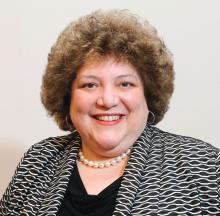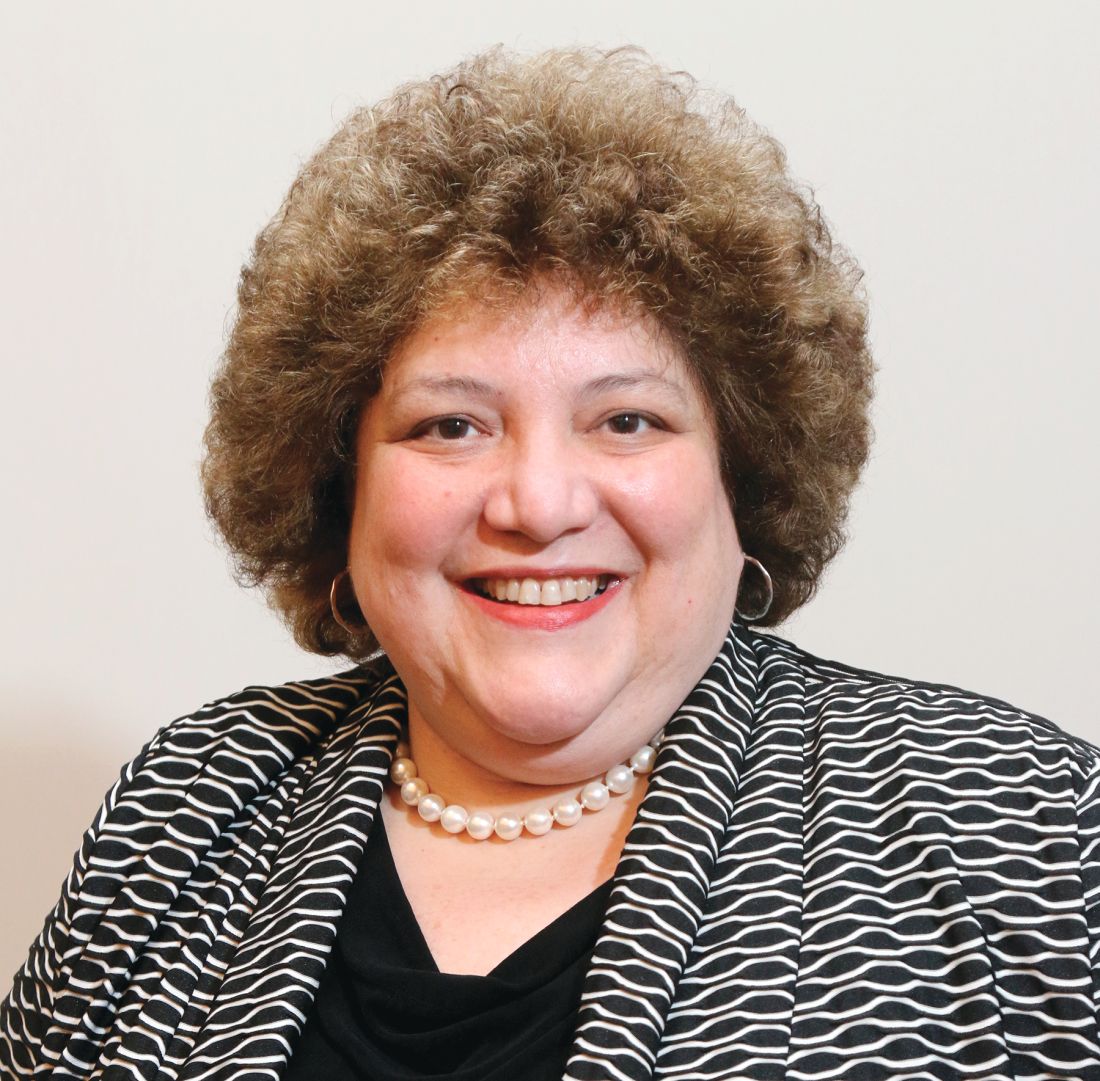User login
What distinguished this year’s course offering was the overall approach and philosophy to utilize educational processes and educational theory resulting in an educational program that adhered to the AGA’s commitment to high-quality, evidence-based, and theory-driven programming.
As a first step in planning the course, we performed a needs assessment. By identifying what learners need to know, we endeavored to develop the ideal course. Our course directors, supported by the AGA staff, reviewed past course evaluations, and in particular, the comments related to suggestions for future programs. We also reviewed and discussed with experts the emerging trend topics and need-to-know areas in GI and hepatology. In doing so, an outline of topics was created, which was subsequently approved by AGA Institute’s Education and Training Committee.
Objectives
At the completion of this course the attendee will be able to:
1. Identify new strategies in the evaluation and management of GI and hepatobiliary problems
2. Recognize medical, surgical, and technological advances in the field of GI and hepatology
3. Apply new strategies for evaluation, therapeutic options, and technology to the optimal care of patients
It is challenging to craft large audience educational experiences so that they also address adult learning principles. We know that adult learners benefit from experiences that are relevant, are problem-centered (rather than content oriented), promote active learning, and provide feedback to the learner. We therefore requested that each session begin with a brief case. Having clinical examples helps learners frame the disease process, and can help demonstrate the importance of learning the material. Finally, all participants were given the opportunity to review each session, and the course in its entirety, to help us improve future programming.
Lunch sessions promoted active learning with the opportunity for interaction, and we also included case-based breakout sessions. Not only was CME accreditation provided, but Maintenance of Certification (MOC) credit was also available.
This educational offering provided a setting to hear from leaders in GI and hepatology, and for learners to gain new insights to take home and apply to the care of patients. The sections that follow provide brief summaries of the sessions from the course written by the moderators.
Please visit http://pgcourse.gastro.org/home to access the content from DDW.
Dr. Rose is a professor of medicine, the Senior Associate Dean for Education, University of Connecticut School of Medicine, Farmington, and the 2017 AGA Postgraduate Course Director. This is a summary provided by the moderator of one of the AGA Postgraduate Courses held at DDW 2017.
What distinguished this year’s course offering was the overall approach and philosophy to utilize educational processes and educational theory resulting in an educational program that adhered to the AGA’s commitment to high-quality, evidence-based, and theory-driven programming.
As a first step in planning the course, we performed a needs assessment. By identifying what learners need to know, we endeavored to develop the ideal course. Our course directors, supported by the AGA staff, reviewed past course evaluations, and in particular, the comments related to suggestions for future programs. We also reviewed and discussed with experts the emerging trend topics and need-to-know areas in GI and hepatology. In doing so, an outline of topics was created, which was subsequently approved by AGA Institute’s Education and Training Committee.
Objectives
At the completion of this course the attendee will be able to:
1. Identify new strategies in the evaluation and management of GI and hepatobiliary problems
2. Recognize medical, surgical, and technological advances in the field of GI and hepatology
3. Apply new strategies for evaluation, therapeutic options, and technology to the optimal care of patients
It is challenging to craft large audience educational experiences so that they also address adult learning principles. We know that adult learners benefit from experiences that are relevant, are problem-centered (rather than content oriented), promote active learning, and provide feedback to the learner. We therefore requested that each session begin with a brief case. Having clinical examples helps learners frame the disease process, and can help demonstrate the importance of learning the material. Finally, all participants were given the opportunity to review each session, and the course in its entirety, to help us improve future programming.
Lunch sessions promoted active learning with the opportunity for interaction, and we also included case-based breakout sessions. Not only was CME accreditation provided, but Maintenance of Certification (MOC) credit was also available.
This educational offering provided a setting to hear from leaders in GI and hepatology, and for learners to gain new insights to take home and apply to the care of patients. The sections that follow provide brief summaries of the sessions from the course written by the moderators.
Please visit http://pgcourse.gastro.org/home to access the content from DDW.
Dr. Rose is a professor of medicine, the Senior Associate Dean for Education, University of Connecticut School of Medicine, Farmington, and the 2017 AGA Postgraduate Course Director. This is a summary provided by the moderator of one of the AGA Postgraduate Courses held at DDW 2017.
What distinguished this year’s course offering was the overall approach and philosophy to utilize educational processes and educational theory resulting in an educational program that adhered to the AGA’s commitment to high-quality, evidence-based, and theory-driven programming.
As a first step in planning the course, we performed a needs assessment. By identifying what learners need to know, we endeavored to develop the ideal course. Our course directors, supported by the AGA staff, reviewed past course evaluations, and in particular, the comments related to suggestions for future programs. We also reviewed and discussed with experts the emerging trend topics and need-to-know areas in GI and hepatology. In doing so, an outline of topics was created, which was subsequently approved by AGA Institute’s Education and Training Committee.
Objectives
At the completion of this course the attendee will be able to:
1. Identify new strategies in the evaluation and management of GI and hepatobiliary problems
2. Recognize medical, surgical, and technological advances in the field of GI and hepatology
3. Apply new strategies for evaluation, therapeutic options, and technology to the optimal care of patients
It is challenging to craft large audience educational experiences so that they also address adult learning principles. We know that adult learners benefit from experiences that are relevant, are problem-centered (rather than content oriented), promote active learning, and provide feedback to the learner. We therefore requested that each session begin with a brief case. Having clinical examples helps learners frame the disease process, and can help demonstrate the importance of learning the material. Finally, all participants were given the opportunity to review each session, and the course in its entirety, to help us improve future programming.
Lunch sessions promoted active learning with the opportunity for interaction, and we also included case-based breakout sessions. Not only was CME accreditation provided, but Maintenance of Certification (MOC) credit was also available.
This educational offering provided a setting to hear from leaders in GI and hepatology, and for learners to gain new insights to take home and apply to the care of patients. The sections that follow provide brief summaries of the sessions from the course written by the moderators.
Please visit http://pgcourse.gastro.org/home to access the content from DDW.
Dr. Rose is a professor of medicine, the Senior Associate Dean for Education, University of Connecticut School of Medicine, Farmington, and the 2017 AGA Postgraduate Course Director. This is a summary provided by the moderator of one of the AGA Postgraduate Courses held at DDW 2017.

